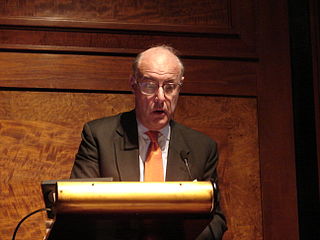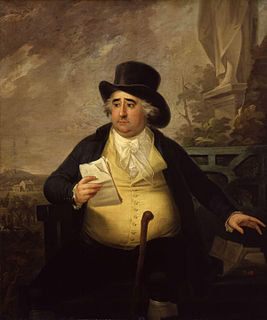A Quote by David Hume
Absolute monarchy,... is the easiest death, the true Euthanasia of the BRITISH constitution.
Related Quotes
And it is undeniably true that the greatest and most important right of a British subject is that he shall be governed by no laws but those to which he, either in person or by his representatives, hath given his consent; and this, I will venture to assert, is the great basis of British freedom; it is interwoven with the Constitution, and whenever this is lost, the Constitution must be destroyed.
Were I to define the British constitution, therefore, I should say, it is a limited monarchy, or a mixture of the three forms of government commonly known in the schools, reserving as much of the monarchical splendor, the aristocratical independency, and the democratical freedom, as are necessary that each of these powers may have a control, both in legislation and execution, over the other two, for the preservation of the subject's liberty.
Of all the memorable phrases that have been minted and mobilised to describe modern British royalty, 'constitutional monarchy' is virtually the only one which seemes to have neither been anticipated nor invented by Walter Bagehot. It was he who insisted that 'a princely marriage is the brilliant edition of a universal fact, and as such it rivets mankind'; and he who warned that the monarchy's 'mystery is its life. We must not let in daylight upon magic'.
In the 20th century, the position of the monarch as head of the Church of England was given a meaning which it never had before. You took the fact that the monarch was head of the Church of England to mean that the British monarchy was itself a religious or moral institution and the monarchy became a symbol of national public morality.
In the Laws it is maintained that the best constitution is made up of democracy and tyranny, which are either not constitutions at all, or are the worst of all. But they are nearer the truth who combine many forms; for the constitution is better which is made up of more numerous elements. The constitution proposed in the Laws has no element of monarchy at all; it is nothing but oligarchy and democracy, leaning rather to oligarchy.







































